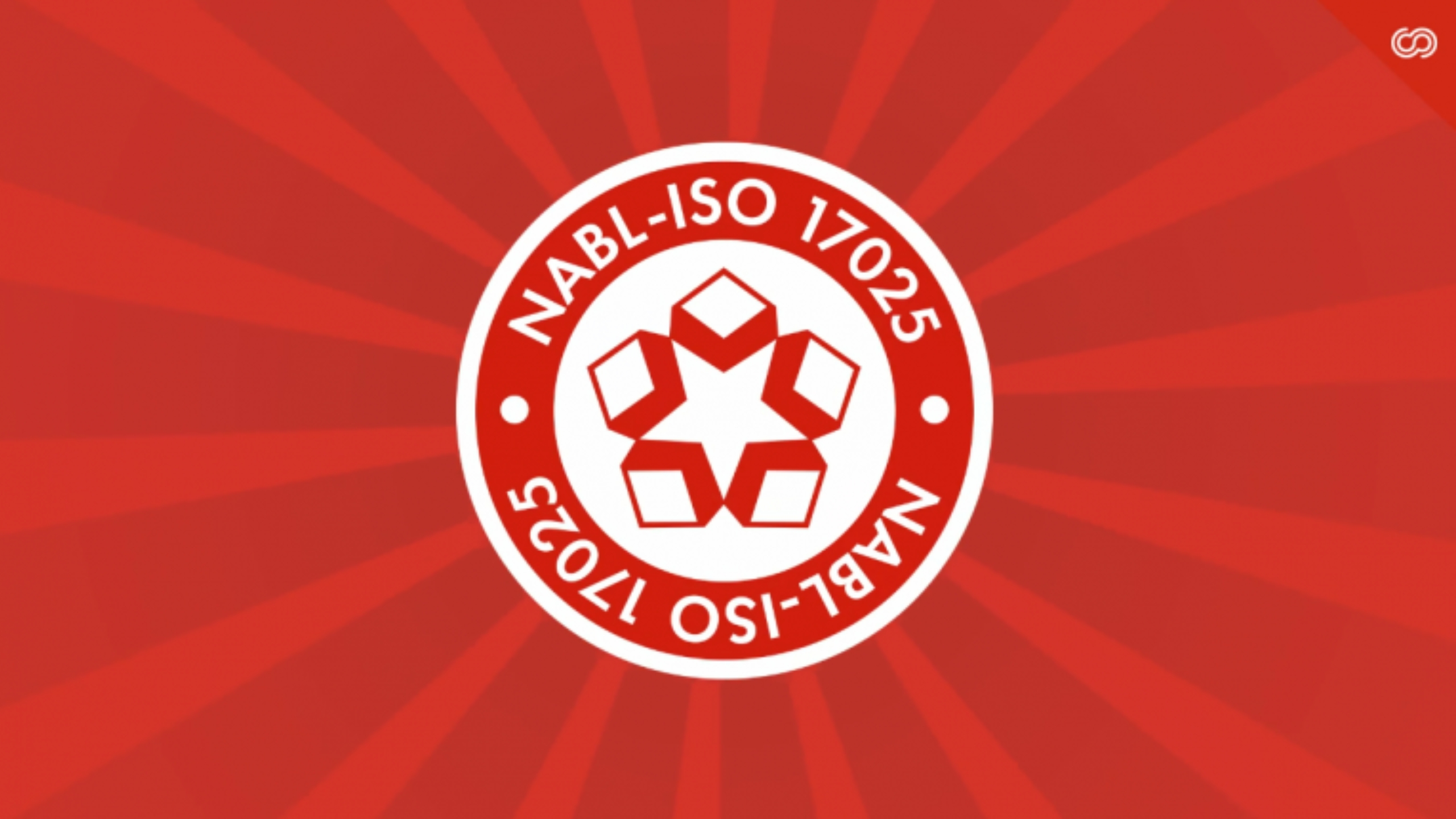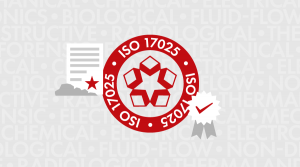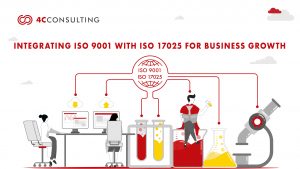
Frequently Asked Questions (FAQ): NABL-ISO 17025 Testing And Calibration Laboratories
25th Aug, 2025
Accuracy in testing and calibration is the backbone of industries such as pharmaceuticals, food, engineering and textiles. Even the smallest measurement error can lead to recalls, regulatory penalties, or safety risks. To ensure reliability, laboratories must demonstrate not only technical competence but also independent accreditation and international recognition. In India, this assurance is achieved through NABL Accreditation, while globally it is aligned with ISO 17025 Certification.
However, the path to accreditation often raises important questions: What documents are required? Is it mandatory? How much does it cost and how often are audits conducted? This blog brings together the 20 most frequently asked questions (FAQs) about NABL and ISO 17025, providing clear, concise answers that explain their importance in building trust, ensuring compliance and enabling global acceptance of laboratory results.
.
WHAT IS NABL ACCREDITATION?
NABL Accreditation is the formal recognition granted by the National Accreditation Board for Testing and Calibration Laboratories (NABL), an autonomous body under the Quality Council of India (QCI). It confirms that a laboratory is technically competent to perform specific tests or calibrations and that its results are reliable, traceable and nationally recognized.
NABL accreditation applies to:
- Testing Laboratories
- Calibration Laboratories
- Medical Testing Laboratories.
- Proficiency Testing Providers (PTP)
- Reference Material Producers (RMP).
For Indian laboratories, NABL accreditation is a badge of credibility. It assures regulators, customers and industry stakeholders that the lab’s results meet national benchmarks. Importantly, NABL also has mutual recognition arrangements (MRAs) with global bodies like ILAC and APAC, enabling Indian labs to gain international acceptance of their reports without redundant re-testing.
.
WHAT IS ISO 17025 CERTIFICATION?
ISO/IEC 17025 Certification is the international standard that defines the general requirements for the competence of testing and calibration laboratories. Unlike NABL, which is India’s accreditation body, ISO 17025 is a globally recognized framework published by the International Organization for Standardization (ISO) and the International Electrotechnical Commission (IEC).
The standard focuses on two key areas:
- Management Requirements: quality management system, document control, corrective actions, audits and continual improvement.
- Technical Requirements: staff competence, method validation, equipment calibration, test environment, sampling and result traceability.
By adopting ISO 17025, laboratories demonstrate that they operate with consistency, impartiality and technical reliability, ensuring that results are comparable across borders. Certification also builds confidence with regulators, industry clients and global buyers who rely on standardized, error-free laboratory reports.
While NABL is the national authority for granting accreditation in India, ISO 17025 is the international benchmark that sets the criteria every competent laboratory must follow to gain worldwide recognition.
.
Struggling with Non-Conformities in NABL–ISO 17025 Audits?
FREQUENTLY ASKED QUESTIONS ON NABL & ISO 17025:
1. Can a company transition from ISO 17025 compliance to NABL accreditation?
Yes, ISO 17025 compliance builds the foundation, as NABL assesses against the same standard. However, NABL requires a formal application, documentation review and onsite assessment before accreditation is granted.
2. How does NABL accreditation improve credibility with regulators and buyers?
NABL accreditation assures that laboratory results are scientifically valid, impartial and traceable. This enhances trust with regulators, buyers and certification bodies, reducing disputes and improving acceptance in domestic and international markets.
3. What role does Responsible Care® or industry codes play in NABL assessments?
While NABL assessments focus on ISO 17025 compliance, many industries, especially chemicals and pharma, align with frameworks like Responsible Care®. This strengthens a lab’s position by showing commitment to quality, safety and sustainability.
4. How often does a NABL-accredited lab undergo reassessment or surveillance audits?
NABL accreditation is valid for two years, with periodic surveillance audits to ensure continued compliance. Reassessments are conducted before renewal to verify ongoing competence and corrective actions.
5. What are the most common non-conformities labs face during NABL audits?
Frequent gaps include incomplete records, improper equipment calibration, poor traceability, inadequate staff training and weak internal audits. Addressing these proactively helps avoid delays or suspensions in accreditation.
6. Does NABL accreditation also cover occupational health and safety aspects?
Not directly. NABL focuses on technical competence and quality management in testing and calibration. However, labs often integrate ISO 45001 or industry safety codes alongside NABL to demonstrate comprehensive compliance.
7. Are global buyers and regulators giving preference to NABL-accredited labs?
Yes, Through NABL’s recognition under ILAC and APAC MRAs, accredited test reports are accepted internationally. Many global buyers, regulators and certification schemes prefer or mandate NABL-accredited labs for trust and consistency.
8. Can small and mid-sized laboratories realistically achieve NABL accreditation?
Yes. While resource-intensive, small and mid-sized labs can achieve accreditation by streamlining documentation, ensuring trained staff and upgrading equipment. NABL supports labs of all sizes if they meet ISO 17025 requirements.
9. What is the cost impact of maintaining NABL accreditation year-on-year?
Costs include application fees, surveillance assessments, equipment calibration, staff training and system upkeep. While ongoing, the investment is offset by increased business opportunities and buyer preference for accredited labs.
10. How does NABL ensure international recognition through ILAC and APAC MRAs?
NABL is a signatory to ILAC (International Laboratory Accreditation Cooperation) and APAC (Asia Pacific Accreditation Cooperation). This allows NABL-accredited reports to be accepted globally, avoiding duplicate testing in exports.
11. Can calibration and testing labs apply for NABL accreditation simultaneously?
Yes, A laboratory offering both testing and calibration services can apply for dual accreditation, provided it maintains separate procedures, records and competent staff for each discipline.
12. How do internal audits help labs stay NABL/ISO 17025 compliant?
In ISO 17025 internal audits we identify gaps, non-conformities and process weaknesses before NABL’s external assessments. Regular audits strengthen compliance, reduce risks and ensure continuous improvement in laboratory practices.
13. What kind of staff competence and training is required for NABL approval?
NABL requires staff to demonstrate technical knowledge, hands-on skills and documented ISO 17025 awareness training in test methods, equipment handling and calibration procedures. Ongoing training is expected to maintain competence.
14. How does NABL accreditation reduce duplication of testing in exports?
Because NABL is internationally recognized, accredited reports are accepted by global regulators and buyers. This eliminates the need for re-testing in the importing country, saving time and cost for exporters.
15. Can a lab lose its NABL accreditation and under what circumstances?
Yes, Accreditation can be suspended or withdrawn if labs fail to maintain compliance, ignore audit findings, falsify results, or discontinue required surveillance activities.
16. How long is NABL accreditation valid and what is the renewal process?
Accreditation is typically valid for two years. Labs must undergo surveillance and reassessment audits during this period to demonstrate continued compliance before renewal is granted.
17. What role does equipment calibration and traceability play in NABL audits?
Equipment must be regularly calibrated, traceable to national or international standards and properly maintained. Lack of calibration records is a common non-conformity in NABL assessments.
18. Is NABL accreditation industry-specific or applicable across all sectors?
NABL accreditation is sector-neutral and applies to any testing or calibration lab, from pharmaceuticals and food to engineering and textiles. The scope depends on the methods and disciplines a lab seeks accreditation for.
19. How can NABL/ISO 17025 strengthen customer confidence and business opportunities?
Accreditation shows that a lab’s results are accurate, impartial and globally trusted. This strengthens customer confidence, improves credibility in tenders and opens up new market opportunities where accredited results are a requirement
20. Is NABL limited to India or recognized internationally?
NABL functions as India’s national accreditation body under the Quality Council of India and its authority is confined to laboratories within the country. However, through its membership in international arrangements such as ILAC (International Laboratory Accreditation Cooperation) and APAC (Asia Pacific Accreditation Cooperation), NABL-accredited reports gain global recognition, allowing Indian laboratories to compete and be accepted internationally without repeat testing.
.
HOW CAN 4C HELP YOUR ORGANIZATION GET NABL-ISO 17025 CERTIFICATION?
The 4C team includes renowned ISO 17025 consultants who are also NABL qualified so that they possess the expertise to empower laboratories with efficient NABL-ISO 17025 implementation and enhance their internal as well as external results for better growth. Having assisted 1000+ labs with NABL-ISO 17025 accreditation, we have gained in-depth knowledge and a knack for an efficient NABL-ISO 17025 accreditation that ultimately maximizes your business. We have also facilitated 50+ ILC/PT testing labs for NABL accreditation and learned new techniques for simplified NABL-ISO 17025 accreditation that helps to get the best of the ISO 17025 standard. To step up your business by improving performance, proficiency of testing competencies and internal operational efficiency, contact our experts now.




